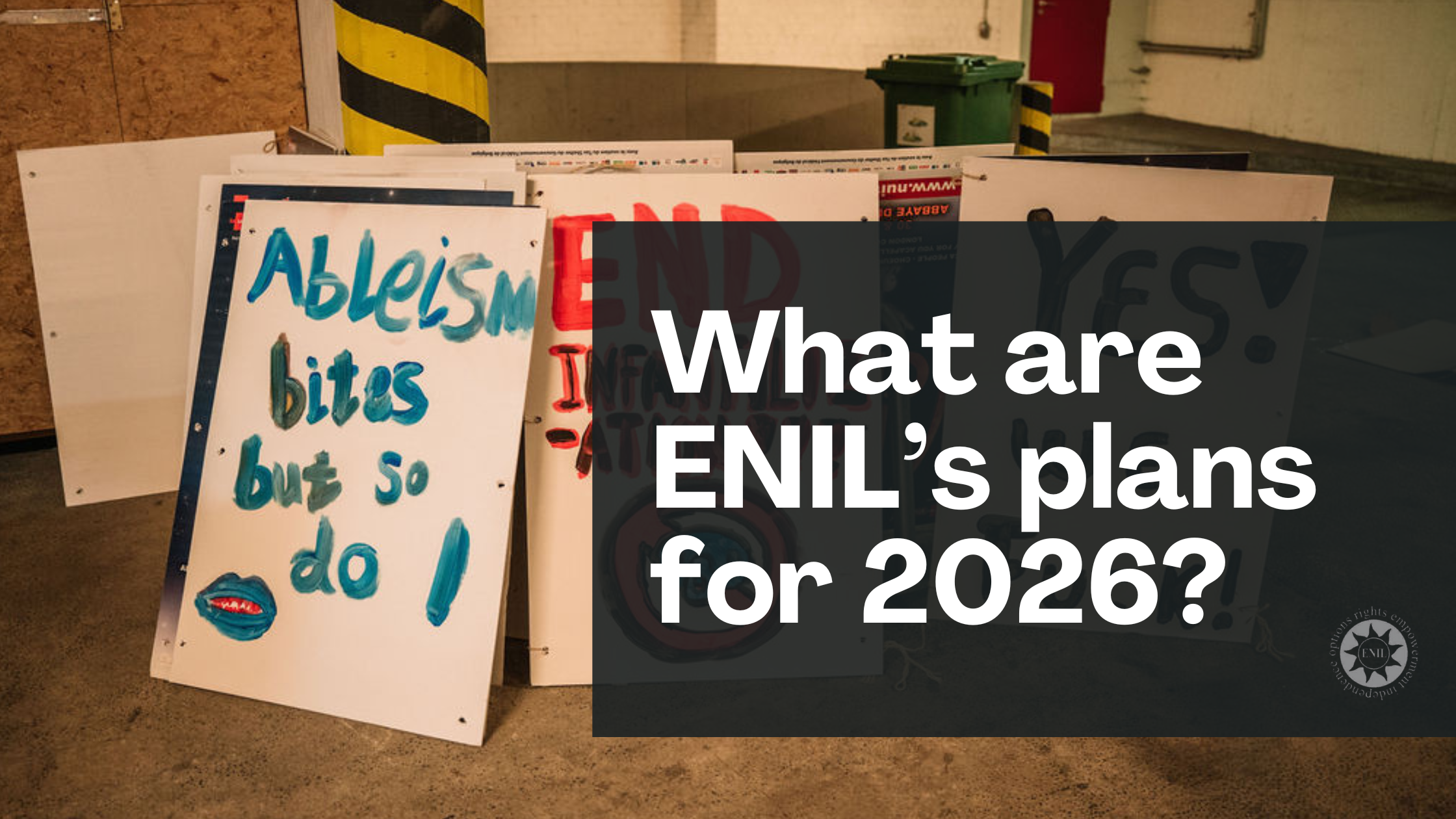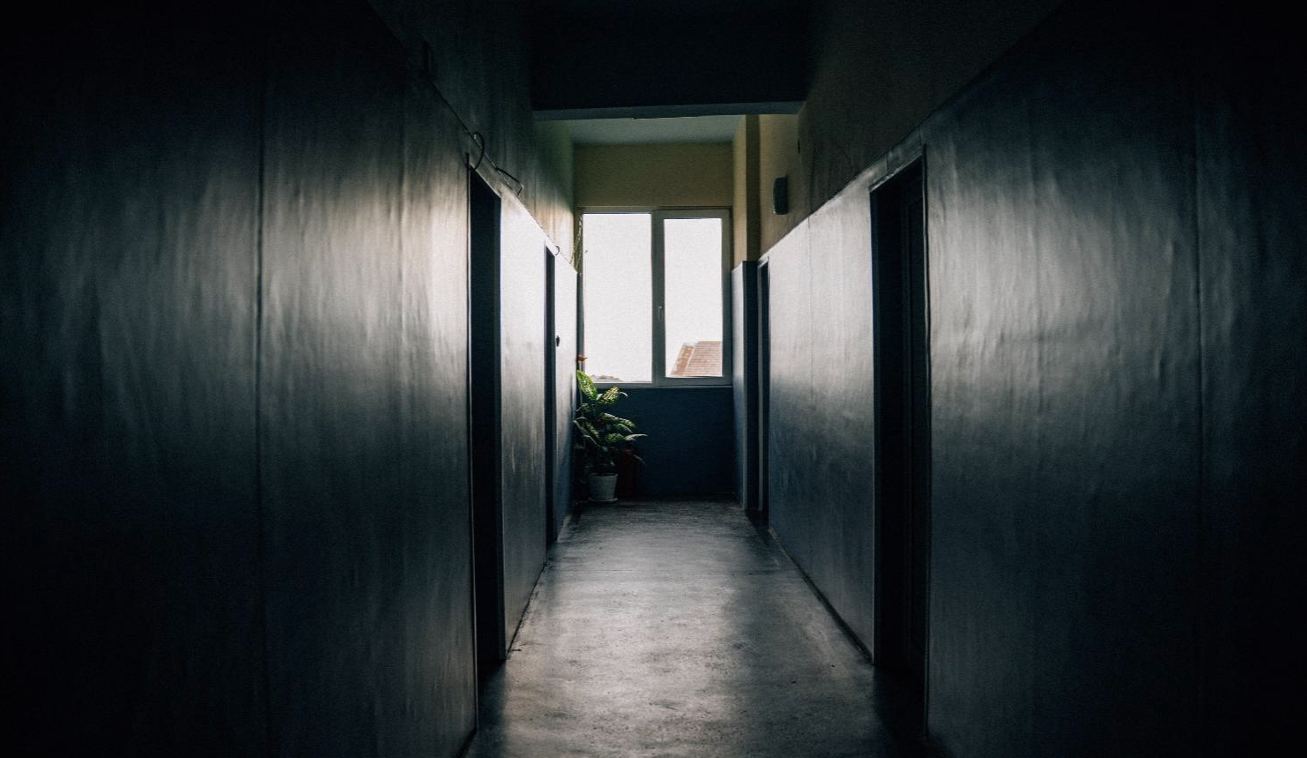On the 24th November, ENIL held a webinar on accessible housing, an issue of major importance for us. It took place on Zoom and was recorded through ENIL’s YouTube channel.
The event was introduced by ENIL’s Deputy Director Ines Bulic Cojocariu, and our first speaker was Thiandi Groof, a self-advocate from the Netherlands, who spoke to us about how the Netherlands had come some way regarding independent living for disabled people, but still had a lot to do. She focused on the area of inclusive education (IE). She stressed the important role that IE had for educating people about disability rights and how it could be used for fighting for accessible housing. She also talked about her own experience with support workers coming to her, which gave her a degree of independence some in the Netherlands didn’t have.
Next, we heard from Gabor Petri from MEOSZ, the National Federation of Organisations of People with Physical Disability in Hungary, who talked about how the Hungarian government were slowly rolling out a supported living scheme for disabled people in Hungary. The scheme aims to place disabled people in smaller group homes that are less isolated than institutions. It does not seem from the information that Gabor provided that the Hungarian government is taking on board the criticisms of the concept of supported living that the UNCRPD Committee came up with, in its review of Hungary’s implementation of Article 12 and 19 of the Convention..
Then we heard from James Cawley from the Independent Living Movement Ireland (ILMI) who talked about the general housing crisis in Ireland and its impact on disabled people. He stressed that there is an ‘independent living jigsaw’ that needs to connect all the pieces of independent living, such as accessible transport, personal assistance and accessible housing.
Next, Andor Urmos, who until recently worked at the European Commission and is now the Director of the ‘Bridge’ NGO, talked about the Commission’s intention regarding EU funds for member states between 2021-2027. He talked about how member states ignore EU guidelines on funds and difficulties with DI such as in Romania. He gave the example of money being made available to build social housing within member states such as in the Czech Republic, but how this money was not used, despite the integrated use of funds being a ‘basic requirement.’ Member States are being asked to prepare strategies on rights such as the EU Fundamental Rights Charter and the UNCRPD, which should be applied across all areas such as housing. A problem is that member states don’t have social housing policy, but they do have political opposition to DI and even lack basic social inclusion strategies.
The last speaker was Alice Bergoend from FEANTSA – European Federation of National Organisations Working with the Homeless, who spoke about the overlap between homelessness and disabled people. She explained that FEANTSA was hoping to take advantage of new EU initiatives, such as the New European Bauhaus, though it is still unclear what the exact purpose of the initiative is. She also talked about the European Affordable Housing Initiative, which was launched in October 2020 to local industries to provide affordable housing, using an innovative approach that engages residents in the development of homes. The aim is to develop responsible growth when it comes to rentals in Europe. The European Parliament released a report that said the COVID crisis has made housing more difficult for disabled people, and the Commission is asking the Member States to invest more in affordable and social housing. FEANTSA wants to end homelessness in Europe, which includes monitoring the situation and providing training to social workers and others willing to learn about housing projects and designing houses for young people.
Finally, there was a Q&A session moderated by our ESC Volunteer Peadar O’Dea, who asked questions to the panellists such as about the general housing crisis in Ireland and how it could be linked to disability politics. He also asked Gabor Petri about flaws inherent within the concept of supported housing and other questions.
It was an engaging and informative discussion about an important issue, and ENIL will be following accessible housing developments closely regarding all our members and associates. You can watch the event here.


